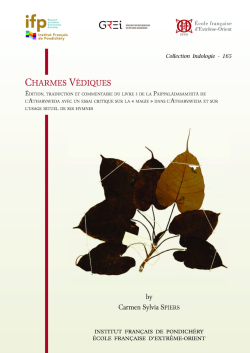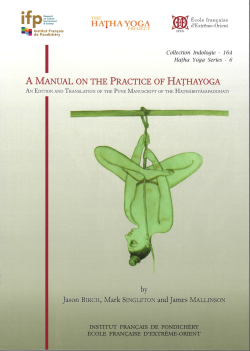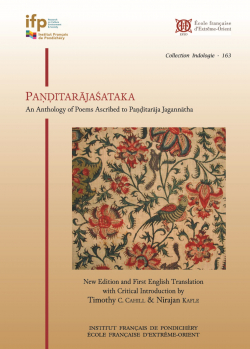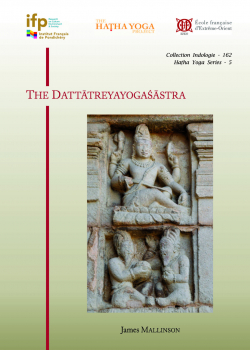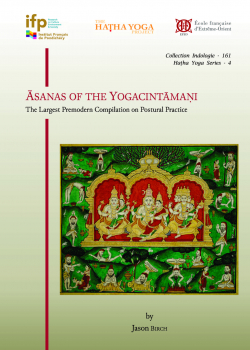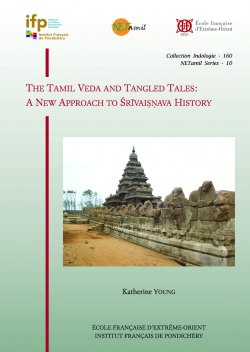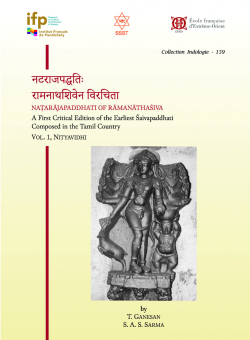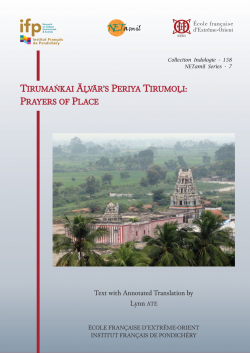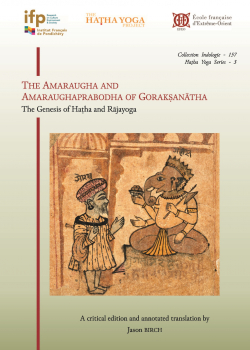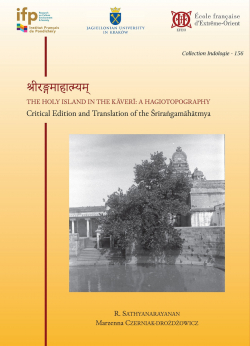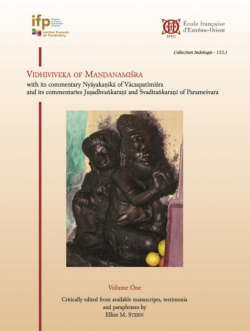The catalog of EFEO Publications includes works on a wide range of disciplines in the humanities and social sciences (archaeology, history, anthropology, literature, philology, etc.), centered on Asia, from India to Japan.
These publications address both specialists, and a wider public interested in Asian civilizations and societies.
The Niśvāsatattvasaṃhitā. The Earliest Surviving Śaiva Tantra
Volume 1. A Critical Edition & Annotated Translation of the Mūlasūtra, Uttarasūtra & Nayasūtra
Collection : Collection Indologie
Collection's number: 128
Editor: Goodall (Dominic)
Edition: EFEO, Institut français de Pondichéry (IFP), Asien-Afrika-Institut, Universität Hamburg
Publication date: 2015
Status : Out of Print
52,00 €
ISBN-13 : 9782855391519
ISSN : 0073-8352
Width : 17,5 cm
Height : 25 cm
Weight : 1,3 kg
Number of pages : 662
Distributor : EFEO Pondichéry Contact : shanti@efeo-pondicherry.org, distributeur online : scholarswithoutborders@gmail.com, distributeur Chennai : jibh.rkc@gmail.com
Geography : India
Language : English, Sanskrit
Place : Pondichéry
Support : Papier
Abstract
Transmitted to us in a well-preserved ninth-century Nepalese manuscript, the Niśvāsatattvasaṃhitā has come in recent years to be recognised as probably the oldest surviving complete scripture of the Mantramārga. Although its historical importance has been hinted at by a range of scholars across the twentieth century, this is the first time its text appears in print. This volume presents a critical edition and annotated translation of the three earliest layers of the text: the Mūlasūtra, Uttarasūtra and Nayasūtra. The topics dealt with include cosmology, rituals of worship and initiation, and forms of yoga. A lengthy introduction sets these sūtras in context, in particular by examining the evidence for dating them. There follow a summary of their contents, an account of the early manuscript and its three twentieth-century apographs, and a treatment of the various ways in which the language of the Niśvāsa deviates from Pāṇinian norms.
Notes
You may also order this title from our centre in Pondicherry at the following address:
library@efeo-pondicherry.org
Or, from the French Institute in Pondicherry at the following address:
library@ifpindia.org
Orders for delivery to India have to be placed with our centre in Pondicherry or the French Institute in Pondicherry.
About the editor
Goodall (Dominic)
Member of the EFEO since 2000.
Dominic Goodall studied Greek and Latin, then Sanskrit at Pembroke College, Oxford. After finishing his BA (Sanskrit with Pali, 1990), he came to Hamburg for two years to learn medieval Tamil with Professor S.A. Srinivasan. He then returned to Oxford, to Wolfson College, where, under the guidance of Professor Alexis Sanderson, he produced a critical edition of the opening chapters of Bhaṭṭa Rāmakaṇṭha’s tenth-century commentary on the Kiraṇatantra, which he submitted as a doctoral thesis in 1995 and subsequently published from Pondicherry in 1998. He was attached to the French Institute of Pondicherry as a junior researcher in 1996–1997 before returning to Oxford as Wolfson College Junior Research Fellow of Indology from 1998 to 2000. In 2000, he became a member of the École française d’Extrême-Orient (EFEO, “French School of Asian Studies”). He became Head of the Pondicherry Centre of the EFEO in 2002, where he remained until April 2011.
Posted in Paris from 2011 to 2015, he gave lectures at the École pratique des hautes études (Religious Sciences Section), principally on Cambodian inscriptions in Sanskrit and on the history of Śaivism from unpublished sources. He is now once again posted in Pondicherry, where he continues to pursue his scholarly interests, in particular in Sanskrit poetry and in the history of the Śaiva Siddhānta.
Among his publications are editions and translations of works of poetry in Sanskrit and of hitherto unpublished Śaiva scriptures and theological commentaries.
He is currently a professor (directeur d’études) at the EFEO, co-editor with Dr. Marion Rastelli of the Viennese dictionary of tantric terminology, the Tāntrikābhidhānakośa, and a contributor to the Hamburg Encyclopaedia of Manuscript Cultures in Asia and Africa (EMCAA).
In May 2016, he was elected membre correspondent étranger de l'Académie des Inscriptions et Belles-Lettres.
Related books
Collection Indologie
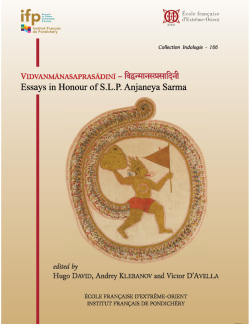
Vidvanmānasaprasādinī
S.A.S. SARMA, Dominic GOODALL, Harunaga ISAACSON, Suganya ANANDAKICHENIN, Hugo DAVID, Kei KATAOKA, Victor D’AVELLA, Giovanni CIOTTI, Andrey KLEBANOV, Émilie AUSSANT, Maria Piera CANDOTTI, Tiziana PONTILLO, Sibylle KOCH, Vincenzo VERGIANI, Timothy C. CAHILL, Somedeva VASUDEVA, Luther OBROCK, M. VINOTH, Maṇi DRĀVIḌA, Akane SAITO, Alex WATSON, Daniele CUNEO, Yūto KAWAMURA
60,00 €
2026
• Check with the publisher

